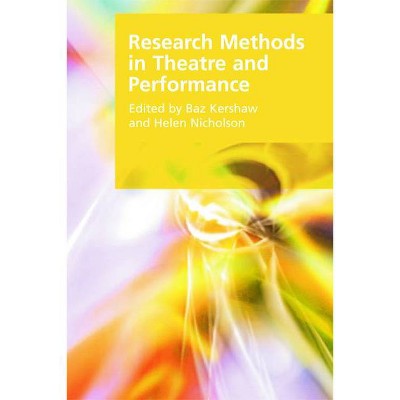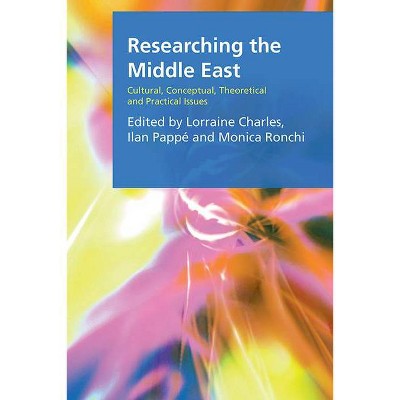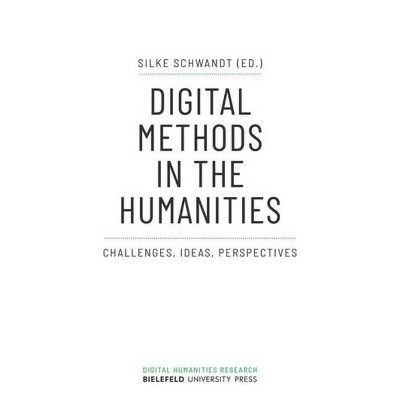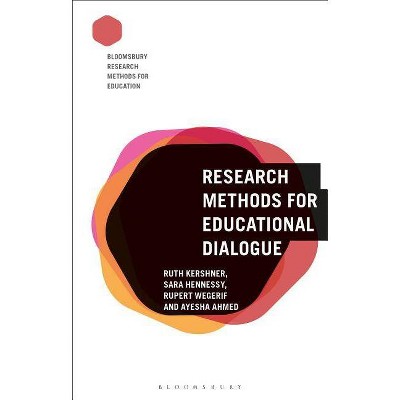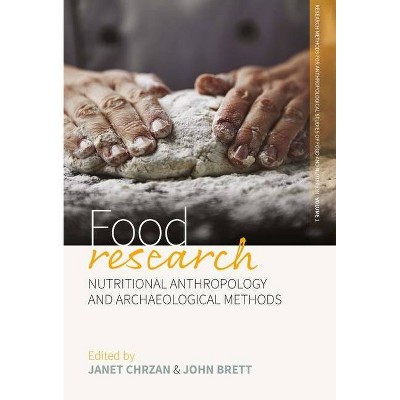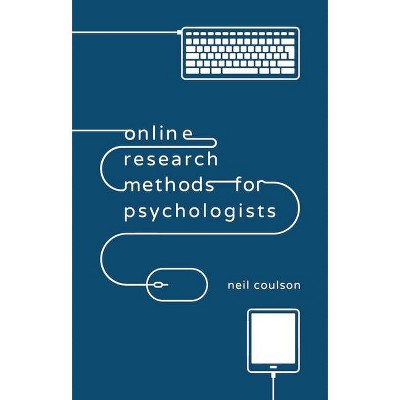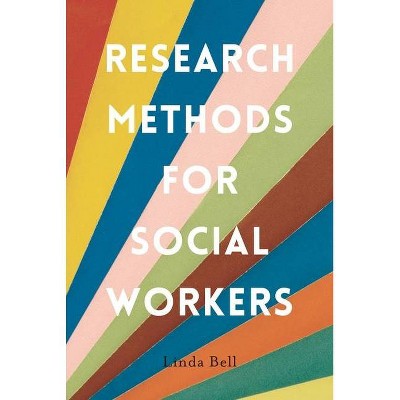Research Methods for Cultural Studies - (Research Methods for the Arts and Humanities) by Michael Pickering (Paperback)
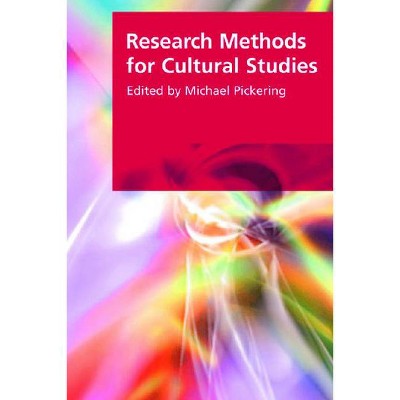
Similar Products
Products of same category from the store
AllProduct info
<p/><br></br><p><b> About the Book </b></p></br></br>An introduction to a range of research methods that are deployed in the study of cultural studies and related disciplines.<p/><br></br><p><b> Book Synopsis </b></p></br></br>This new textbook addresses the neglect of practical research methods in cultural studies. It provides students with clearly written overviews of research methods in cultural studies, along with guidelines on how to put these methods into operation. It advocates a multi-method approach, with students drawing from a pool of techniques and approaches suitable for their own topics of investigation. The book covers the following main areas: * Drawing on experience, and studying how narratives make sense of experience.* Investigating production processes in the cultural industries, and the consumption and assimilation of cultural products by audiences and fans.* Taking both quantitative and qualitative approaches to the study of cultural life.* Analysing visual images and both spoken and written forms of discourse.* Exploring cultural memory and historical representation.The contributors, along with Michael Pickering, are Martin Barker, Aeron Davis, David Deacon, Emily Keightley, Steph Lawler, Anneke Meyer, Virginia Nightingale, and Sarah Pink. The book is designed for use by students on upper-level undergraduate and taught Masters-level courses as well as postgraduate research students and cultural studies researchers more generally. It will be of enormous value across all fields of study involved in cultural enquiry and analysis<p/><br></br><p><b> From the Back Cover </b></p></br></br>This new textbook addresses the neglect of practical research methods in cultural studies. It provides students with clearly written overviews of research methods in cultural studies, along with guidelines on how to put these methods into operation. It advocates a multi-method approach, with students drawing from a pool of techniques and approaches suitable for their own topics of investigation. The book covers the following main areas: * Drawing on experience, and studying how narratives make sense of experience. * Investigating production processes in the cultural industries, and the consumption and assimilation of cultural products by audiences and fans. * Taking both quantitative and qualitative approaches to the study of cultural life. * Analysing visual images and both spoken and written forms of discourse. * Exploring cultural memory and historical representation. The contributors, along with Michael Pickering, are Martin Barker, Aeron Davis, David Deacon, Emily Keightley, Steph Lawler, Anneke Meyer, Virginia Nightingale, and Sarah Pink. The book is designed for use by students on upper-level undergraduate and taught Masters-level courses as well as postgraduate research students and cultural studies researchers more generally. It will be of enormous value across all fields of study involved in cultural enquiry and analysis. Michael Pickering is Professor of Media and Cultural Analysis in the Department of Social Sciences at Loughborough University. He has published in the areas of cultural history and the sociology of culture as well as media analysis and theory.<p/><br></br><p><b> Review Quotes </b></p></br></br><br>Michael Pickering has assembled a fine and fascinating collection of articles from various scholars working in cultural studies. That the book consists of ten chapters plus an introduction and index makes it an ideal starter text for those beginning research... Of particular assistance to the course leader who may well select this book as a text for an undergraduate or graduate course is the Summary Key Points section which concludes each chapter. The clarity of these summary points, along with a Further Reading section, provides accessibility and focus that is always valuable for new scholars. Pickering intends his book to help establish methods training as an integral part of doing cultural studies. In this, he has succeeded... Pickering's text is likely to become a classic in the field and helpful to any and all interested in meaningful research within the social sciences.--Allyson Jule, Trinity Western University, Canada "Qualitative Research"<br><br>Providing readers with a clear, concise overview of the qualitative and quantitative approaches to research methods in cultural studies, This book will be useful for undergraduate students of all aspects of cultural study from anthropology to media studies.-- "Bookseller"<br><br>Research Methods for Cultural Studies is a brilliant book. It is inspiring, challenging, stroppy, provocative and well written. It has punch and passion ... This is the best book that has been written on cultural studies methods.--Tara Babazon, University of Brighton "Times Higher Education"<br><br>This book serves a double purpose: it features very useful 'how to' advice and guidance but Pickering and his contributors also take many of the assumptions and practices of cultural studies to task. This book is primarily aimed at upper level undergraduate and graduate students, but it would be a valuable resource across all areas of teaching.--Geoff Lealand, University of Waikato "Media International Australia"<br><p/><br></br><p><b> About the Author </b></p></br></br><p>Professor Michael Pickering teaches in the Social Sciences at Loughborough University. His most recent books include Researching Communications (2007); Blackface Minstrelsy in Britain (2008); Research Methods for Cultural Studies (2008); Popular Culture, a four-volume edited collection (2010). Rhythms of Labour: The History of Music at Work in Britain, co-written with Marek Korczynski and Emma Robertson, will appear in May 2013, published by Cambridge University Press.<p>
Price History
Cheapest price in the interval: 28.99 on October 27, 2021
Most expensive price in the interval: 28.99 on November 8, 2021
Price Archive shows prices from various stores, lets you see history and find the cheapest. There is no actual sale on the website. For all support, inquiry and suggestion messages communication@pricearchive.us

